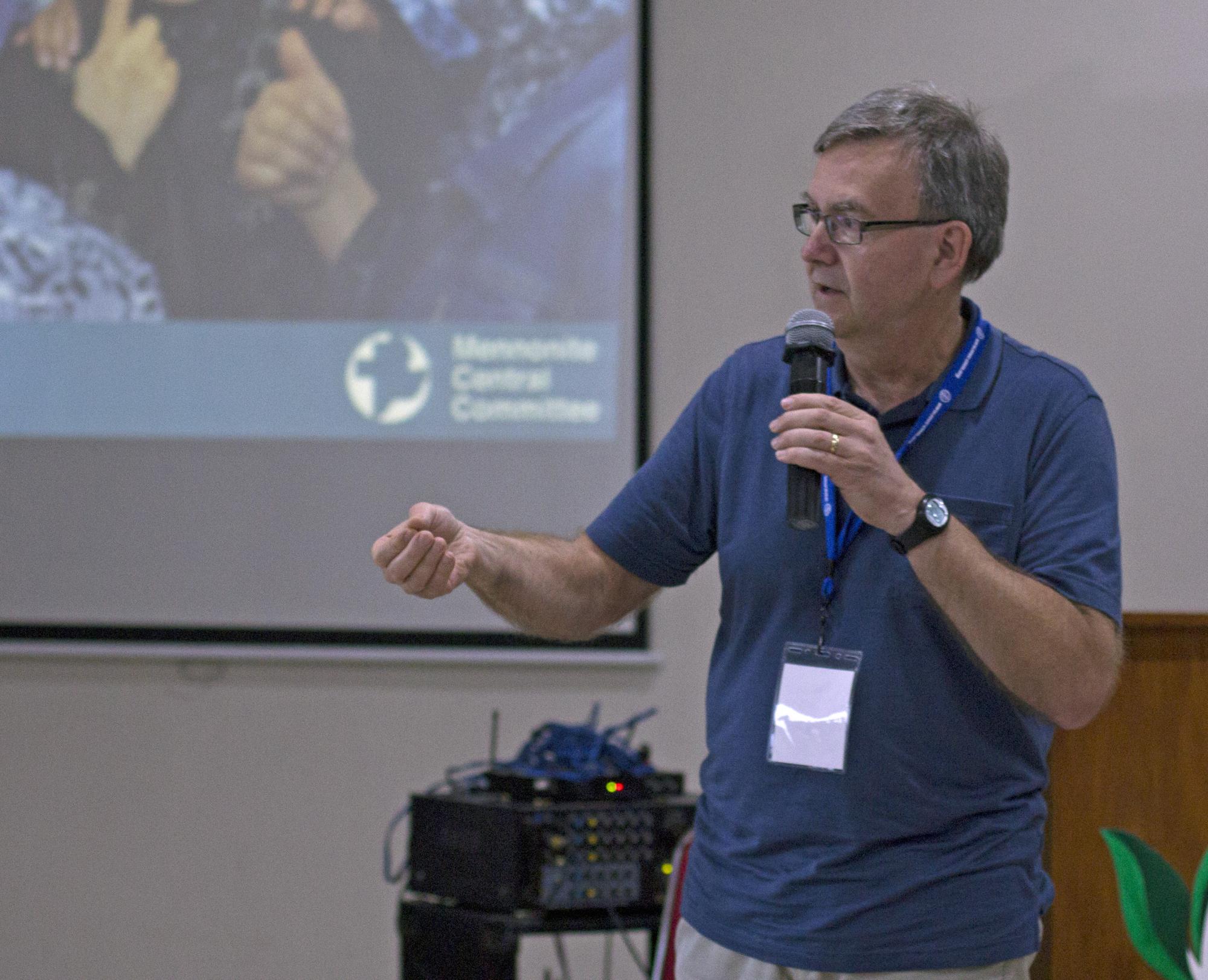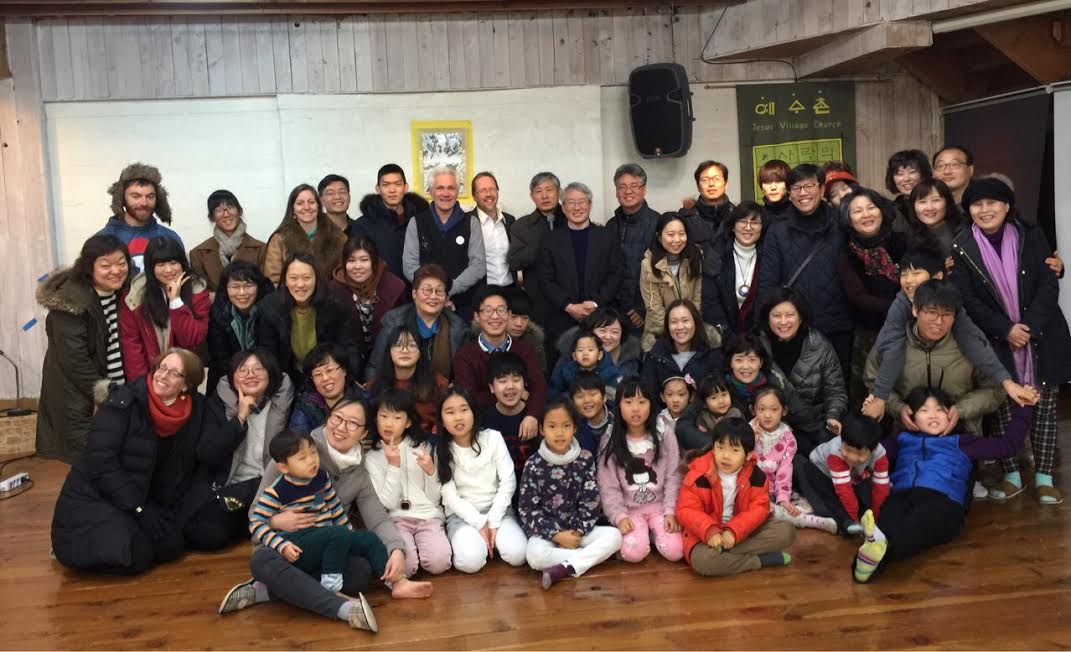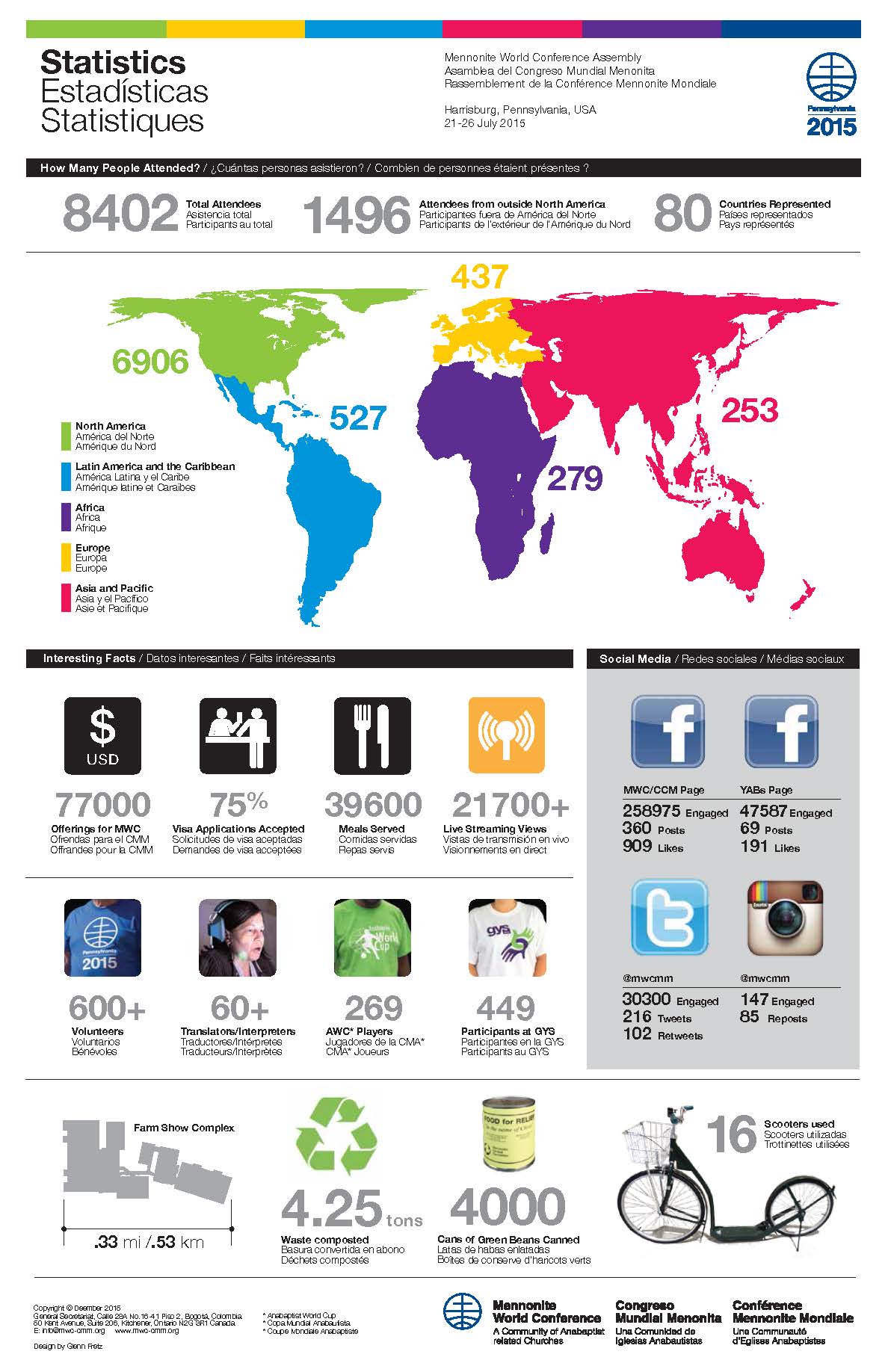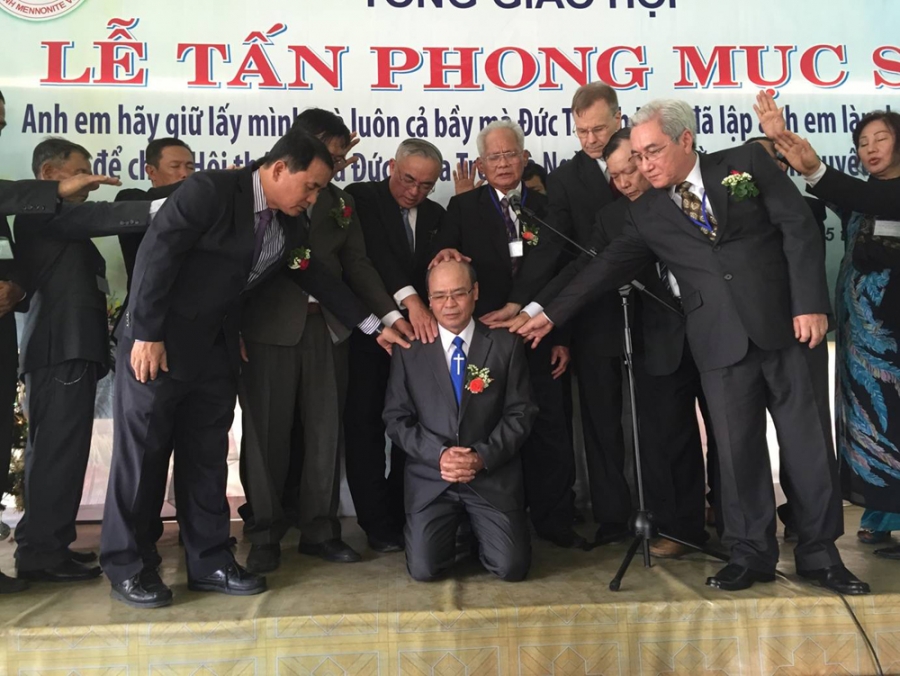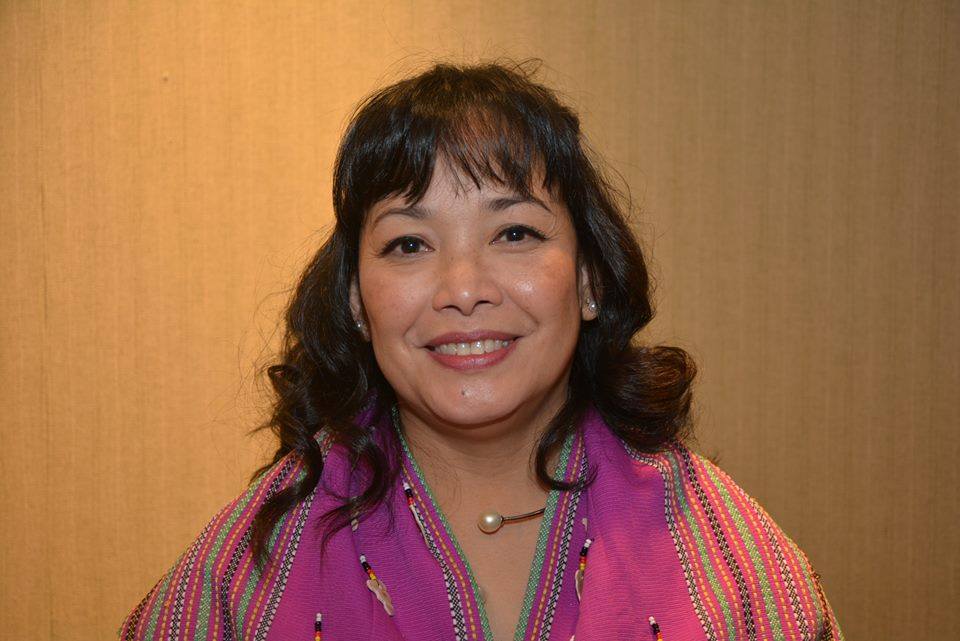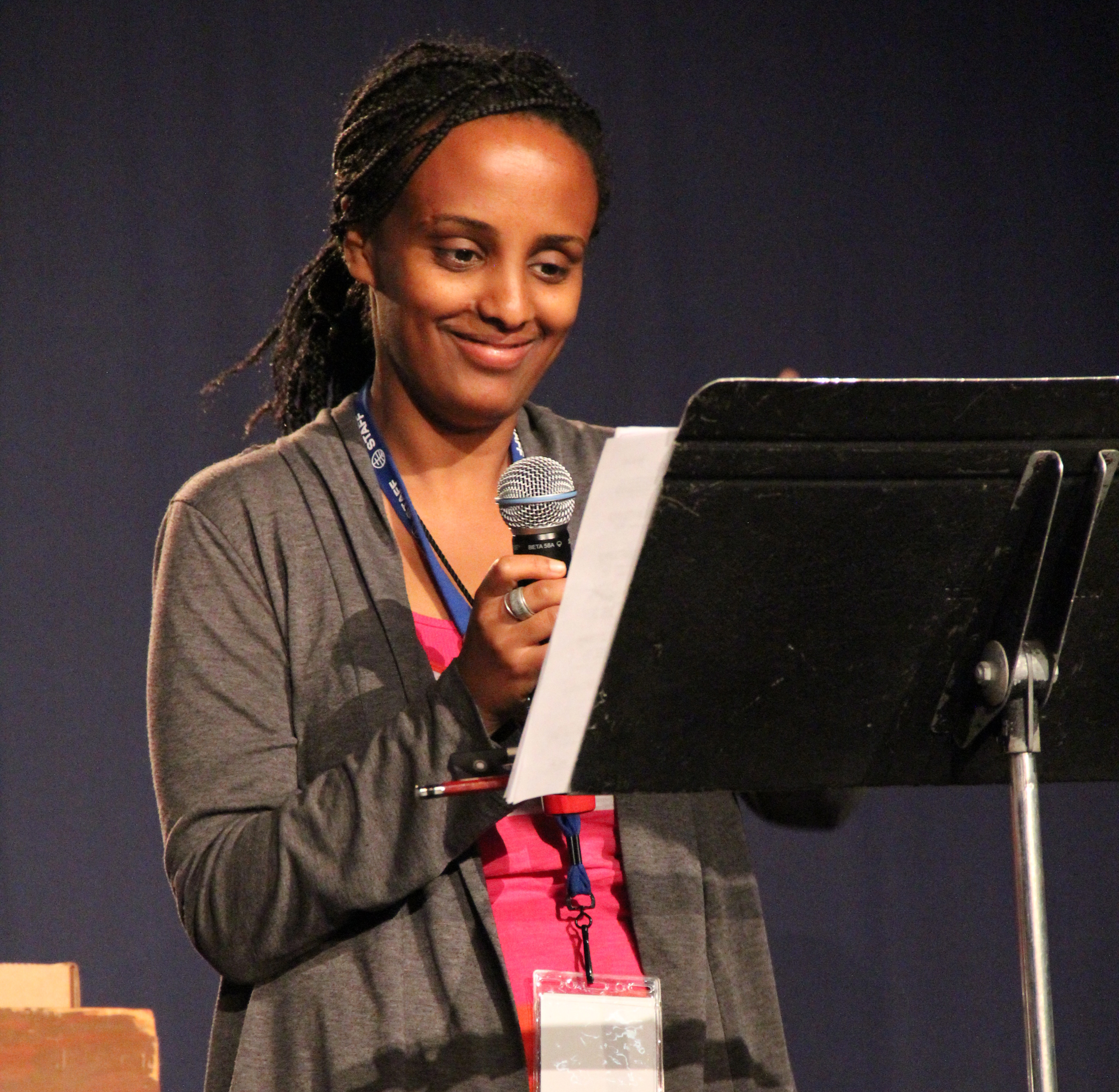-
Renewal decade commemorates 500th anniversary
Bogotá, Colombia – On 12–19 February 2017, Anabaptist-Mennonites from around the world will gather in Augsburg, Germany, to celebrate the opening event of Renewal 2027 in conjunction with meetings of the Mennonite World Conference Executive Committee. Renewal 2027 will be a 10-year series of events (culminating in 2027) to commemorate the 500th anniversary of the
-
“Not in my name” – European Mennonites reject violence
Bogotá, Colombia – Mennonite churches in Europe are responding the violence and displacement in the Middle East that is affecting their society. Arbeitsgemeinschaft Mennonitischer Gemeiden (AMG – Mennonite church in Germany) and Algemene Doopsgezind Societeit (ADS – Dutch Mennonite society) each wrote a letter to their governments urging peace. The AMG recognizes its country’s compulsion
-
Fellowship and Renewal
New Executive Committee meets in Indonesia Bogotá, Colombia – Excitement for Mennonite World Conference (MWC) Assembly 2021 was in the air at the MWC Executive Committee annual meeting 12–19 February 2016 in Semarang, Indonesia. Gereja Kristen Muria Indonesia (GKMI), Gereja Injili di Tanah Jawa (GITJ), and Jemaat Kristen Indonesia (JKI), the three MWC member churches
-
Project: A-Mar, or Oceans of Love
South American Mennonite youth build friendships across borders Cartagena, Chile – When talking about the sea and border problems between Chile and Bolivia, it is common to hear derogatory and xenophobic comments that mirror patriotic ideas, and which appeal to conflicts that have existed for more than a hundred years. The 19th-century War of the
-
Anabaptist Movement Flourishing in South Korea
Goshen, Indiana, USA – On 30 January 2016, nearly 100 people gathered in downtown Seoul, Korea to participate in the first Korean Anabaptist Conference. The goal of the gathering, according to Bock Ki Kim, director of the Korea Anabaptist Center and co-sponsor of the event, was “to introduce Anabaptist theology and values in a public,
-
South Korean CO released from prison
Sang-Min Lee freed after 15 months in jail for refusing mandatory military conscription Harrisburg, Pennsylvania, USA – Sang-Min Lee, a South Korean Mennonite conscientious objector (CO) has been released from prison. Lee was sentenced to 18 months in prison for refusing, on the basis of his faith, to complete the government’s mandatory military service. According
-
PA 2015 by the numbers
Bogotá, Colombia – Mennonite World Conference’s (MWC) 16th Assembly in Pennsylvania, USA, connected Anabaptists from around the world, in person and electronically. A new statistics poster released by MWC illustrates the final numbers from PA 2015. There are many interesting facts, for example: 75 percent of visa applications were accepted and 4.25 tons of waste
-
Vietnam Mennonite Church ordains 26
HO CHI MINH CITY, Vietnam – After six years of training and preparation, the Vietnam Mennonite Church (VMC), a Mennonite World Conference member, ordained 26 pastors in Ho Chi Minh City on 5 December 2015. Pastor Nguyen Quang Trung, president of VMC, officiated at the ordination service for 26 Mennonite pastors who had come from
-
JUST coffee in the Philippines
At one of the breakout sessions in MWC Assembly Gathered 2015 in Harrisburg, Pennsylvania, last July, former and present MWC workers exchanged coffee from their respective countries during their reunion. Unbeknownst to many, one special brand traded that day is not just another coffee. Coffee for Peace from the Philippines is JUST coffee. The story
-
South Korean CO asks: “Can I kill?”
GOSHEN, Indiana, USA — When 27-year-old SangMin Lee, a Mennonite conscientious objector from South Korea, was sentenced to 18 months in prison, the global Mennonite church community provided support in the form of letters and prayers. In early December 2015, Lee spoke with supporters at the Institute for the Study of Global Anabaptism and Goshen
-
New generation of YABs committee members
Bogota, Colombia – Five new young adults have been appointed to represent young people from their continental regions in Mennonite World Conference (MWC) on the Young AnaBaptists (YABs) Committee. Makadunyiswe Doublejoy Ngulube (Zimbabwe), Ebenezer Mondez (Philippines), Jantine Huisman (Netherlands), Dominik Bergen Klassen (Paraguay), and Larissa Swartz (USA) will have their first meeting as the new
-
Healing wounds through art: A YAMEN experience
Bogotá, Colombia – For Keila Viana, seeing how art can heal wounds deepened her understanding of God and his love during her international service in Phnom Penh, Cambodia. “I believe that during this time God worked a lot in my life,” says Viana, a 22-year-old young adult from the Iglesia Evangélica Menonita Camino de Santidad,
